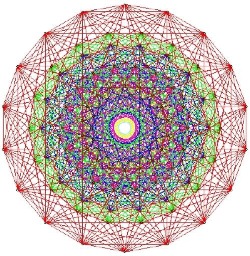 Allesandro Torrielli’s project on “Exotic quantum groups, Lie superalgebras and integrable systems” has been funded by EPSRC for a period of 12 months. The £120K grant funds research time for Allesandro, travel and a workshop in 2014 (with the provisional workshop title: New trends in quantum groups and integrable systems). A summary of the project for a general audience follows.
Allesandro Torrielli’s project on “Exotic quantum groups, Lie superalgebras and integrable systems” has been funded by EPSRC for a period of 12 months. The £120K grant funds research time for Allesandro, travel and a workshop in 2014 (with the provisional workshop title: New trends in quantum groups and integrable systems). A summary of the project for a general audience follows.
In recent years, motivated by the study of a particular class of integrable systems, new remarkable mathematical structures have been discovered which had not been investigated before. These exotic algebraic constructions extend the standard framework of quantum groups to situations where new exciting effects manifest themselves.
Integrable systems have the property that their evolution equation admit an exact solution via reduction to linear problem. When these systems are combined with Lie superalgebras – namely Lie algebras for which a grading exists identifying even and odd generators – unconventional features emerge. This has been established in part through the work of the PI. The Hopf algebra describing tensor products of these algebras, for instance, acquires non-trivial deformations, whose consequences have not been fully understood. Furthermore, the systems in question exhibit a symmetry enhancement which is not manifest from the Hamiltonian formulation. This “secret” symmetry results in novel higher-level quantities being conserved during the time evolution. A complete mathematical formulation of these phenomena has yet to be developed, and it is very much sought for in order to understand potential implications for branches of mathematics such as algebra, geometry, the theory of knots and link invariants and integrable systems.
The aim of this research is to understand such exotic structures, and use this new understanding to attack challenging problems at the interface between algebra and integrable systems. One of these problems is the so-called non-ultralocality of Poisson structures, governing the formulation of integrable systems in their semiclassical approximation. Non-ultralocality makes the algebraic interpretation of the solution to these systems dramatically more obscure, and it is a difficult problem which has challenged mathematicians for years. We believe that the key to significant progress in this direction is a rigorous understanding of the underlying exotic algebras. Any progress in this direction will have a major long-term impact on the mathematical community, and on the scientific environment in the UK and internationally.
